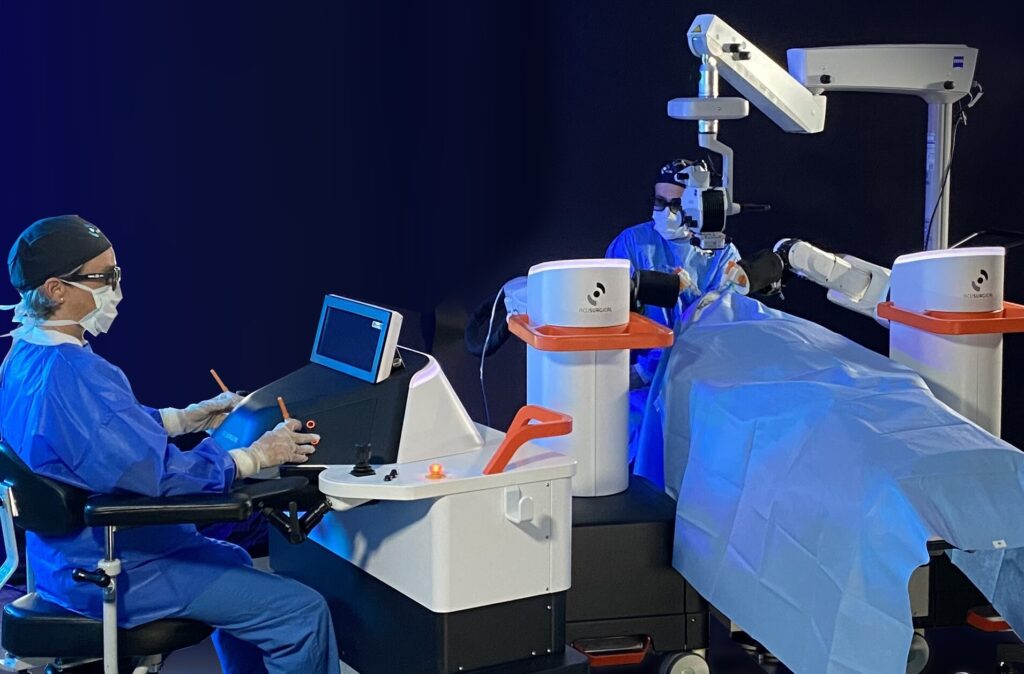Luca™ robot successfully performs its first ophthalmic surgeries on patients
AcuSurgical, winner of the 2019 Companies And Campus program and designer of the world's first dual-arm ophthalmic robot, Luca™, has reached a decisive milestone: the successful completion of the first surgeries performed with its robot. The start-up aims to revolutionize retinal disease surgery, one of the most delicate and complex procedures in ophthalmology, by offering an unprecedented level of precision.

Co-founded in 2020 by Christophe Spuhler and two researchers from LIRMM, Philippe Poignet and Yassine Haddab, as well as two vitreoretinal surgeons from Saint-Etienne University Hospital and Jean Monnet University, Philippe Gain and Gilles Thuret, AcuSurgical has developed the world's first dual-handed ophthalmic robot. The first operations assisted by Luca™ have just been performed at Ghent University Hospital in Belgium. This isa major milestone in the development of this innovation: "The laboratory has been developing robots designed to assist surgeons in their work for around 30 years. It is extremely satisfying to see the Luca™ robot progress to the patient testing phase. This is the first stage of validation before applying for certification on the European and American markets," says Philippe Poignet enthusiastically.
After receiving initial seed funding from SATT AxLR in 2018, Christophe Spuhler and the two researchers were selected for the program offered by the UM: " After the idea had matured, the Companies and Campus program enabled us to recruit a third engineer at a crucial stage in the project's development to work on features related to robot guidance using vision ."
The robot improves procedural capabilities and offers greater control to surgeons, who can perfect their dexterity and the quality of their procedures. "Initially, our ambition is to perform surgical procedures with greater precision. In the future, we hope that the robot will be able to perform subretinal injections, which are currently very difficult to perform due to the level of precision required," says Yassine Haddab.
Before the experimental phase, the Luca™ robot had to be developed over several years to ensure that no unexpected movements would endanger the patient's vision. This phase also involves training and adapting surgeons to the robot: "Teams need to familiarize themselves with the robot, because such a machine changes the paradigms of how teams are used to working," say the two researchers. This innovation could revolutionize the lives of 300 million people worldwide who are currently suffering from retinal disease.